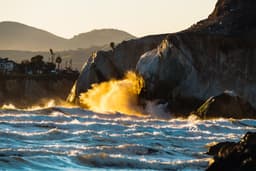Home / Weather / UK Faces Arctic Blast: Snow and Ice Threat
UK Faces Arctic Blast: Snow and Ice Threat
18 Nov
Summary
- Cold Arctic air brings the first significant cold snap of autumn.
- Wintry showers and snow accumulations of up to 20cm possible.
- Cold Weather Payments to be issued automatically for eligible households.

Cold Arctic air has firmly established itself across the UK, heralding the first notable cold snap of autumn and an early taste of winter weather. Residents are warned of potential winter hazards, including significant snow and ice, particularly on Wednesday and Thursday. Wintry showers are anticipated in areas exposed to brisk northerly winds, affecting Northern Ireland, southwest Wales, southwest England, northeast England, and northern Scotland.
While not all areas will see snow accumulation, some locations could receive between 2-5 cm. Higher ground in Scotland might see up to 20 cm, with the North York Moors and Yorkshire Wolds potentially accumulating 15-25 cm. Temperatures are well below average, with rural Scotland potentially dropping to -11°C overnight, and daytime highs remaining in the low single figures for many.
In response to the cold, Cold Weather Payments, valued at £25 per week, will be automatically distributed to eligible households. These payments are triggered by seven consecutive days of temperatures at or below 0°C. The Department for Work and Pensions will begin issuing these payments from November 2025, with funds appearing in bank accounts within 14 days of the qualifying cold weather period.



